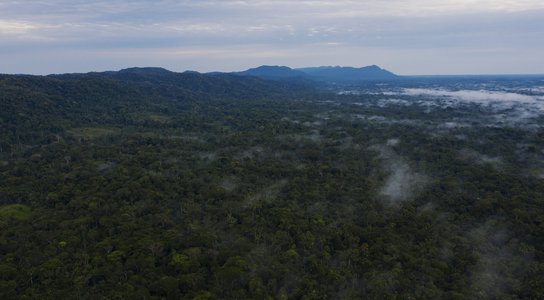A new analysis released today by Global Witness together with our partners at Corporate Accountability and Corporate Europe Observatory has identified at least 636 fossil lobbyists who have been granted access to COP27. That means that even more fossil fuel lobbyists are attending the talks than in Glasgow last year. There are also twice as many fossil fuel lobbyists as delegates from the official UN constituency for indigenous peoples.
This finding is the result of a rapid analysis of the over 30,000 delegates admitted to the talks carried out by Global Witness using a combination of scraping, machine learning and long hours poring through the data. We define fossil fuel lobbyists as people who have links to companies with significant business activities in fossil fuels, or who are attending the talks as part of a trade body representing fossil fuel interests.
Even then, the estimate is likely to be conservative, as our methodology relies on delegates to the talks disclosing their own connections to fossil fuel interests, and many lobbyists may choose to obscure that link. We also rely solely public sources like company websites, news coverage or databases like InfluenceMap’s for connecting delegates to fossil fuel interests.
We have also not included the many lobbyists for other industries closely tied to fossil fuels or heavily implicated in the climate crisis, like the finance industry, big agribusinesses or petrochemicals industry.
We cannot afford fossil fuel companies in the room,
greenwashing, delaying and pushing questionable technofixes that allow them to carry on with
business as usual.
Global Witness, together with our partners on this project, Corporate Accountability and Corporate Europe Observatory, are calling for conflict of interest policies at COPs that would restrict fossil fuel lobbyists' role, similar to the international ban on tobacco industry lobbyists in public health policy.
This call to Kick Big Polluters Out is being supported by more than 450 organisations. You too can add your voice to this campaign by signing the petition.
Our analysis identified over 636 fossil fuel lobbyists. 29 countries brought a total of 200 fossil fuel lobbyists as part of their official delegations. More than one in five in Russia’s 150 strong delegation are from the fossil fuel industry.
Canada’s official delegation to the talks included executives from Enbridge, the company behind the controversial Line 3 pipeline that would move 760,000 barrels of oil per day to the United States, much of it from heavily polluting tar sands projects.
A 2021 investigation by The Guardian found that Enbridge was paying millions of dollars to US police for arresting and surveilling hundreds of demonstrators who oppose construction of its Line 3 pipeline. Enbridge told the newspaper that an independent account manager allocates the funds, and police decide when protesters are breaking the law.
List of all the fossil fuel lobbyists we identified, including what delegation they attended as part of
Last year our analysis showed that at least 503 fossil fuel lobbyists flooded the Glasgow talks. The news, and pressure from civil society activists, put the UN agency behind the talks, the UNFCCC, under pressure to explain the role of fossil fuel lobbyists at the climate talks.
Patricia Espinosa, then the UN Climate Agency’s executive director claimed that “We do not allow open lobbying or open promotion of oil and gas, of course, that would be against the objectives of the Paris Agreement and the convention.” Questions from Global Witness around how this rule was enforced at COP27 went unanswered by the UNFCCC at the time.
Vicki Hollub, the CEO of Oxy, a major US oil and gas producer, complained in October this year that oil and gas companies like hers were not allowed into negotiations at COP26, though she did get access to the talks last year.
Hollub claimed at an energy industry event that oil and gas companies were already working to influence this year’s COP27 and next year’s COP28, scheduled to take place in the United Arab Emirates. She predicted that they would be allowed into negotiations with the climate talks taking place in oil producing countries.
Hollub’s prediction seems to have come true with her and eleven of her colleagues from Oxy gaining access to this year’s talks as part of the official United Arab Emirates delegation, which included at least 70 fossil fuel lobbyists according to our analysis.
Oxy is one of the largest US oil and gas producers and a major producer in the prolific Permian oil basin. The company was also the second highest spending oil and gas lobbyist in the United States in 2021, behind only Koch Industries. Hollub has criticised others for pushing the energy transition “too quickly” saying instead that with carbon capture technology, largely used to pump yet more oil, she can see a way to continue producing oil and gas “for the foreseeable future, I’m talking 2060, 2070, 2080, I’m not talking about ending fossil fuel development in ten or twenty years”.
The UN’s Intergovernmental Panel on Climate Change has made clear in their definitive report this year that even just using the existing fossil fuel infrastructure would already blow through 1.5 degrees of warming. The International Energy Agency has warned that no investment in new oil, gas or coal projects is compatible with reaching net zero by 2050.
At this year’s climate talks the need for action is even more pressing than ever before. We need decision makers to listen to the people, calling for an equitable, just and rapid transition, not the polluters denying, delaying and distracting. We need to kick them out.


